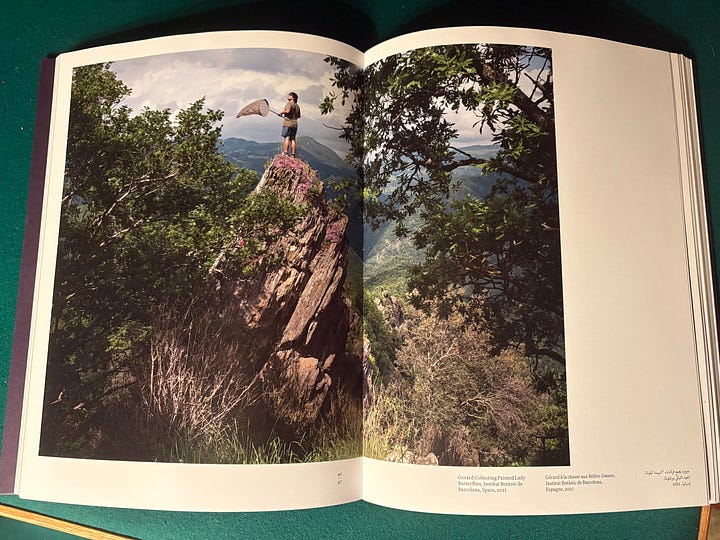I talk about moving a lot in my household. My husband studies wildlife migration, and my family shifts between California and Wyoming a few times a year. The move can be an exciting trip — ask migrating elk — but the point of it all is to what we’re getting closer to. The loss comes from what we leave behind.
At this moment in America, people are moving to new homes and new cities at the lowest rate on record, according to a recent Wall Street Journal article. Entry-level jobs that tend to prompt workers to move to new places are hard to come by right now. People with jobs are holding on to their positions, as are those who were able to buy homes when interest rates were lower.
Still, as you hear in our episode this week, some of you are picking up and trying somewhere new:
This year on Labor Day weekend, I'm moving away to New Orleans.
For the last several years, I've been asking the universe for a shift. To meet a partner, to have a kid, and it hasn't come. So at a certain point I realized it was up to me to create my own shift and to answer my own needs.
I am in New York City and Woodstock, New York, and we are selling and getting rid of everything to move to Paris. I have. Multiple sclerosis and the healthcare in France is very desirable. So we are moving for healthcare, for culture, and for great food.
We were married for 23 years, had a very happy marriage, but in January he passed away. I had been wanting to move back to Chicago and I thought, this is it. I'm gonna do it. And I was a little bit nervous about making a change like this at age of 67. But, um, I thought, well, if I stay in Utah, I'm still gonna be 67. I'm not gonna be any younger there. So, I just had to do it.
I am planning a very big move before the end of the year. Um, I moved to the US 11 years ago and I've been in New York for eight of those years and I wanted to make it work so badly and I tried really hard and I gave it my all. But I have come to the conclusion that New York doesn't love me. In the way that I need it to.
I also catch up with Heidi Reinberg this week, whom I first interviewed in 2014. We talked then about losing her affordable rental on the Brooklyn block she loved and how she fought to return to it multiple times. Friends helped out, helping her land housing and giving her time to reset when her freelance income ran dry. You’ll hear why that neighborhood still feels like home, even as she’s settling into another new rental outside of the city she loves at 64.
Listening to Heidi’s story prompted one listener, Becky in Tampa, to write in:
I just can’t get over Heidi’s friend who BOUGHT HER SHOES AND TOLD HER TO START WALKING. Is there a greater love?! I mean, first, they let her stay with them. Then, they gave her expectations and boundaries! But lovingly, like a parent! I just think it is so beautiful, and I keep thinking about it after listening yesterday.
My children are in their early 20’s and this is the kind of parenting I have been trying to do for the last 5 years (one of the kids really needs it, the other one really doesn’t). I bought her shoes, why won’t she walk?! It’s not easy.
I love that Heidi’s friends were so loving and generous, and so attuned to what she needed at that time in her life. They are a true inspiration.
Thanks for everything, DSM!
While we’re talking about moving….
Two other moving-related things that are beautiful.
The photographer Lucas Fuglia has a beautiful new book called Constant Bloom that I got to look through this week. He follows the longest butterfly migration, through Europe, Africa, and the Middle East, and his photographs bring us up close to the people they encounter along the way.


You can see more of his work here.
And the English band Supergrass is playing in San Francisco this weekend, and it reminded me of a mixed tape staple in college: Their 1999 jam “Moving.” Just try to resist grooving when the beat changes around 1:30.
Other Recommended Reads, Watches & Listens
High Country News profiled Rosalinda Guillen, a long-time organizer from Washington state, who hosts “community assemblies” to build relationships and drive toward solutions: “You need to be a neighbor and listen. You need to be part of the community that you’re trying to organize. Listen closely to what the community is saying, document that conversation, then really strategize with them, keep digging deeper into what it is that is really impacting them. Then what do you want to see happen to change it?”
Radio Atlantic has a three-part series on addiction interventions in San Francisco called “No Easy Fix.” You’ve probably heard plenty about the challenge of moving active drug use off the streets of the city and getting addicts support and stable housing. What felt engrossing and fresh was Ethan Brooks’ sustained close-range storytelling. The listener can feel the privilege of being let into reporting relationships that he’d cultivated with care. Here’s episode one.
Are microplastics really a problem? I learned a lot from this episode of Search Engine.
Until next week,
Anna
This newsletter is free to you, but let me urge you to support the Death, Sex & Money team by becoming a member of Slate Plus. What do you get? Ad-free listening and special member-exclusive podcast drops. Please join us at slate.com/dsmplus or through Apple Podcasts or Spotify.
Listen to our latest Death, Sex & Money episodes
8/27 Your Moving Stories
8/20 The Internet Taught Me to Diet, Then Saved Me With Weightlifting
8/20 Bonus: A Writer Took Ayahuasca to Ease Her Despair. It Kind of Worked? (Apple|Spotify|Slate)
8/13 He’ll Move Your Couch, and Keep Your Secrets
8/5 How the Ultra-Rich Think…and What They Fear
8/5 Bonus: A Son Confronts His Rich Dad’s Tax Avoidance (Apple|Spotify|Slate)
7/29 The Real-Life Willy Wonka Who Built Tony Hawk a Secret Desert Train
7/22 The Elvis Impersonator That Married 75 People a Day
7/22 Bonus: Revenge Fantasies Are Fun, But Are They Healthy? (Apple|Spotify|Slate)
